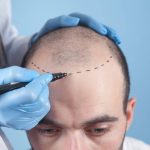Physical Changes After Obesity Surgery
One of the most significant effects of obesity surgery is the rapid physical transformation. Patients typically lose a substantial amount of weight within the first six months, with continued progress over the following year.
As weight loss progresses, the body undergoes adjustments, including skin elasticity changes and shifts in metabolism. Some individuals may experience loose skin, which can be managed through exercise or, in some cases, cosmetic procedures. Additionally, metabolic rates stabilize over time, making it crucial to follow a structured eating plan to maintain results.
Dietary Adjustments and Nutritional Needs
After obesity surgery, dietary habits must change significantly. Patients start with a liquid diet before gradually introducing soft and solid foods. Portion control is essential, as the stomach’s capacity is significantly reduced.
Proper nutrition is crucial to prevent deficiencies. High-protein meals, vitamin supplements, and avoiding high-sugar and high-fat foods help maintain energy levels and overall health. Consulting a nutritionist can ensure that patients follow a balanced diet tailored to their needs.
Emotional and Psychological Impact
Undergoing obesity surgery is not just a physical transformation but an emotional journey as well. Many patients experience mood swings, body image concerns, and even depression due to the rapid lifestyle changes.
Support groups, counseling, and therapy can play a crucial role in managing these emotions. Understanding that weight loss is a process and adjusting to a new self-image takes time is essential for long-term success.
Exercise and Physical Activity Post-Surgery
Regular exercise is a key component of maintaining the results of obesity surgery. Initially, light activities such as walking and stretching are recommended, followed by more intense workouts as the body adapts.
Strength training, cardiovascular exercises, and flexibility routines help prevent muscle loss and promote overall fitness. Consistency is crucial to achieving long-term weight management and improved health.
Potential Complications and How to Manage Them
Although obesity surgery is generally safe, some complications may arise, such as infections, nutrient deficiencies, and gastrointestinal issues. Understanding the risks and following post-operative care guidelines can minimize complications.
Regular medical check-ups, proper hydration, and adhering to dietary recommendations help in avoiding common issues. Promptly addressing any discomfort or unusual symptoms with a healthcare professional is essential for a smooth recovery.
Social and Lifestyle Changes
Social interactions and lifestyle habits often change after obesity surgery. Patients may find that dining out requires careful food choices, and social gatherings often revolve around food, necessitating a shift in perspective.
Family and friends play an important role in the transition, providing support and encouragement. Educating loved ones about dietary restrictions and lifestyle changes can help create a positive and understanding environment.
Long-Term Success and Weight Maintenance
The ultimate goal of obesity surgery is sustained weight loss and improved health. This requires a lifelong commitment to healthy habits, including balanced eating, regular exercise, and continuous medical follow-ups.
Patients who adhere to their post-surgery guidelines are more likely to maintain their weight loss and avoid regaining weight. Developing a positive relationship with food and adopting a long-term mindset is essential for lasting success.
Conclusion
Life after obesity surgery involves significant physical, emotional, and lifestyle changes. While the journey may be challenging, the benefits of improved health, increased confidence, and enhanced quality of life make it a worthwhile endeavor. With the right mindset, support system, and commitment to a healthier lifestyle, patients can achieve long-term success and enjoy a fulfilling post-surgery life.
Frequently Asked Questions
- Is obesity surgery safe?
- Yes, when performed by experienced surgeons, obesity surgery is generally safe. However, as with any medical procedure, there are risks involved.
- How much weight can I expect to lose?
- Weight loss varies, but most patients lose 50-70% of their excess weight within the first year after obesity surgery.
- Will I need to follow a special diet after surgery?
- Yes, a structured diet plan is necessary. Patients must follow a liquid diet initially, then transition to soft and solid foods over time.
- How long is the recovery period?
- Recovery times vary, but most patients return to normal activities within 4-6 weeks after obesity surgery.
- Can I drink alcohol after surgery?
- Alcohol should be avoided or consumed in moderation, as it can have stronger effects and may contribute to weight regain.
- What are the risks of obesity surgery?
- Possible risks include infections, nutrient deficiencies, and digestive issues. Regular follow-ups with a doctor help manage these risks.
- Will I need plastic surgery after weight loss?
- Some patients opt for plastic surgery to remove excess skin, but this depends on individual circumstances and personal preferences.
- Can obesity surgery cure diabetes?
- In many cases, obesity surgery can significantly improve or even resolve type 2 diabetes, but individual results vary.
- How soon can I start exercising after surgery?
- Light activities like walking can start within days, while more intense exercise should be introduced gradually under medical supervision.
- Is obesity surgery a permanent solution?
- It is a tool for weight loss, but long-term success depends on lifestyle changes, including diet and exercise adherence.












